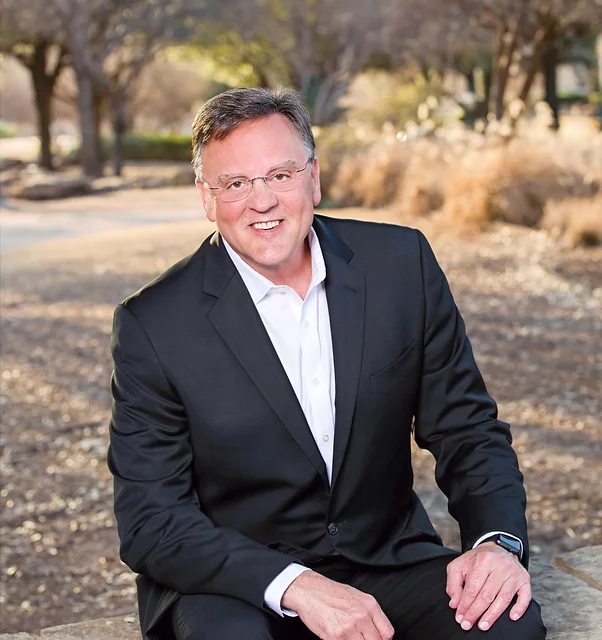After completing medical school at Michigan State University College of Osteopathic Medicine, Dr. Maass completed his family medicine residency at the University of Minnesota in partnership with Mayo Clinic. Once board certified in family medicine, he then specialized in sports medicine by completing his primary care sports medicine fellowship at the University of Connecticut (UConn) in conjunction with UConn Health.
While training at UConn he benefited from the fellowship’s commitment to hands-on learning. As a fellow, he cared for several high-level athletes across a wide variety of sports. He found traveling with the teams, providing extensive sideline medical coverage, and honing his ultrasound-guided procedure skills profoundly fulfilling. While Dr. Maass found his fellowship training enjoyable, he goes on to describe how his journey to sports medicine was not always pleasant.
Dr. Maass credits his time in medical school as being his defining moment in his personal and professional life. He describes needing to become resilient as he was confronted with immense personal and professional challenges during his 4 years at Michigan State.
“I struggled in medical school. The academics were of course very challenging. On top of that my wife and I lost everything in a complex-wide apartment fire. I had to have a sit-down and realize that getting through medical school was probably going to be the hardest thing I will ever do. I felt like I was supposed to be a doctor. Becoming a physician is just down in my soul. I knew that was what I was supposed to do, so I recommitted to pushing through.”
With the support of his wife and family, he was able to persevere and excel in the remainder of his medical training.
The Effects of the COVID-19 Pandemic on His Practice
When the full weight of the COVID-19 pandemic hit in March of 2020, Dr. Maass was 9 months into his 12 months of training. It was at that 9 month mark that all sports came to a screeching halt. “That was a huge adjustment for me, especially given that being sideline for different sporting events and caring for athletes was the reason I was here. To have that all come to a halt was painful.”
Like many of his colleagues at the time, he volunteered to help with frontline COVID-19 testing at UConn Health. The frontline testing experience, along with his passion for athlete healthcare, further motivated Dr. Maass when it came time to care for and eventually begin clearing COVID-positive athletes for return to sport-related activities.
Whether it was providing the frontline COVID-19 tests or caring for athletes and their COVID-19 illness, Dr. Maass summarized his experience by stating, “with COVID-19, learning never stops.”
In addition to the medical strain felt by athletes and the general population that had been infected with COVID-19, the pandemic also placed a strain on the ability of medical providers to communicate with their patients given the social distancing guidelines that were in place, especially during the early stages of the pandemic.
Navigating the Issues Surrounding Communication and Telehealth During the Global Pandemic
Dr. Maass and his team at the UConn Health Center suffered some setbacks during the pandemic as they tried to transition to more telehealth-drive healthcare. “The pandemic ravaged everyone—physically, psychologically, and financially. We had a lot of work to do.” According to Dr. Maass, telehealth is a two-way street. Even if a medical facility has the technology and capability to connect with patients via the internet and individual patient portals, the patient must also have access to the technology necessary to facilitate an effective patient-physician interaction.
It is clear that the COVID-19 virus is deadly. What has also becoming clear is the massive health equity disparities present within our current health care system. Continued innovation and advancement is necessary to ensure that every individual has the healthcare access necessary to allow for improved quality of life across all of our communities.
Vaccination: The Progress, Closeness of the United States to Immunity, and Challenges of Convincing People to Get Vaccinated
Dr. Maass believes that, even though it is great that the vaccines are out in circulation, everyone still needs to be disciplined and responsible. “While the vaccine is a crucial part of getting past the virus, we still have to abide by some social distancing guidelines. We still have to mask up; we still have to wash our hands; we still have to look out for the people around us that aren’t yet vaccinated.”
Again, with the vaccines, there is a lot of apathy and/or hesitancy resulting largely from misinformation. Herd immunity can only be achieved when the vast majority of the population of the United States gets vaccinated. Encouraging hesitant adults (especially parents) to get vaccinated will continue to be a complicated endeavor. However, Dr. Maass believes that honest communication along with properly informed opinions are paramount to getting more individuals vaccinated.
Conclusion
It will likely take years for the full impact of the COVID-19 virus to be understood. However, Dr. Maass, along with his colleagues at UConn Health Orthopedics and Sports Medicine, remain committed to providing the highest quality care to their patients, regardless of the obstacles the pandemic may put in their path.
At TopDoctor Magazine, our mission is to foster connections within the health and wellness community, acting as a vital bridge between doctors and patients and facilitating collaborations between medical companies and healthcare professionals.
Our purpose extends to empowering our readers, providing them with the knowledge to make well-informed healthcare and lifestyle decisions.
We take pride in being the ultimate resource for interviews with health and wellness leaders, delivering trending medical news, and covering a wide range of healthy living topics.








0 Comments